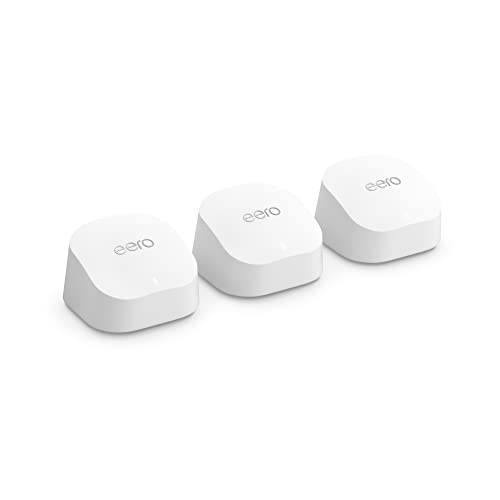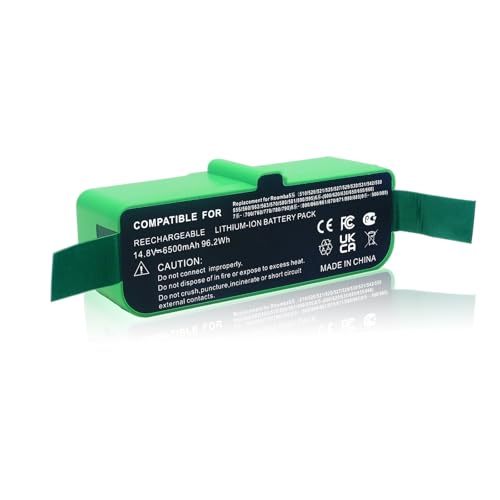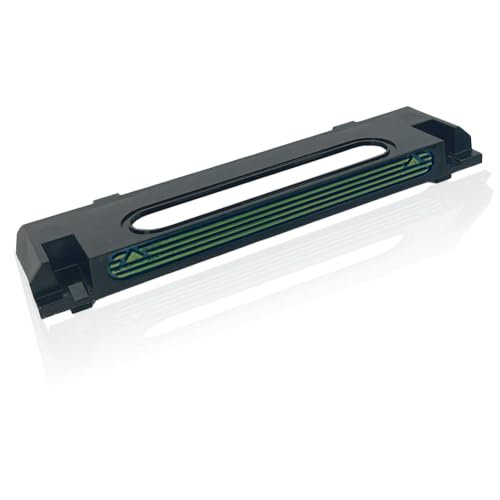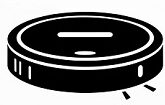The iRobot Roomba 980 is a powerful robotic vacuum designed to make home cleaning effortless. Its smart features, including Wi-Fi connectivity and app control, are central to its appeal. However, it can be incredibly frustrating when the device fails to appear on your wireless network, effectively losing its “smart” capabilities. This common issue can stem from various sources, ranging from simple network settings to physical obstructions.
This comprehensive guide will walk you through the necessary steps to diagnose and resolve wireless connectivity problems with your Roomba 980. We will cover everything from basic network checks and software updates to advanced router configurations and preventive maintenance. By following these instructions, you can re-establish a stable connection and get your robotic vacuum back to cleaning your home intelligently and efficiently.
Why Your Roomba 980 Isn’t Connecting
Before diving into solutions, it helps to know the common culprits behind a Roomba 980’s refusal to connect to Wi-Fi. Most connectivity issues fall into a few key categories. The problem could lie with your home network configuration, such as an incompatible Wi-Fi frequency or weak signal strength. Outdated software on your phone’s iRobot app or the Roomba’s own firmware can also create communication barriers.
Furthermore, physical factors play a significant role. Obstacles blocking the signal path or interference from other household electronics can disrupt the connection. In some cases, the problem might be more complex, involving network congestion or specific router settings that need adjustment. Identifying the potential cause is the first step toward implementing the right fix.
A Step-by-Step Guide to Fix Connectivity Issues
Follow these systematic steps to troubleshoot and resolve your Roomba 980’s wireless connection problems. Start with the simplest solutions and progress to more advanced steps if the issue persists.
1. Verify Your Network Configuration
Your home Wi-Fi network is the foundation of your Roomba’s connectivity. An improper setup is often the primary reason for connection failure.
Check the Wi-Fi Connection
First, confirm that your internet service and Wi-Fi network are functioning correctly. Try connecting another device, like your smartphone or laptop, to the same Wi-Fi network to ensure it’s active and stable. Your Roomba 980 must also be within the effective range of your wireless router to establish a strong connection.
Confirm Router Compatibility
The Roomba 980 is designed to operate exclusively on a 2.4 GHz Wi-Fi network. Many modern routers are dual-band, broadcasting on both 2.4 GHz and 5 GHz frequencies. If your router is set to a 5 GHz-only mode, your Roomba will not be able to see or connect to it. Access your router’s settings and verify that the 2.4 GHz band is enabled.
Boost Signal Strength
A weak or inconsistent Wi-Fi signal can prevent your Roomba from maintaining a stable connection. If the charging dock is located far from the router, the signal may be insufficient. Consider moving the router closer to the Roomba’s base or investing in a Wi-Fi extender to amplify the signal in that area of your home.
If your Roomba is struggling to maintain a connection due to a weak Wi-Fi signal, a Wi-Fi extender can significantly boost coverage and reliability, especially if your router is far from the Roomba’s charging base.

Best overall for high-speed, wide-coverage mesh networks.

Balanced performance for mid-sized homes.

Budget-friendly with strong security and reliability.

Premium option for eero mesh network users.
If you have a large home or multiple floors, a mesh Wi-Fi system can provide seamless, strong Wi-Fi coverage throughout your entire property, ensuring your Roomba always has a robust connection.

Best for large homes with ultra-fast tri-band Wi-Fi 6E.

Premium mesh system with Wi-Fi 6E and gigabit+ speeds.

High-performance mesh system with strong security and coverage.

Affordable gigabit mesh system with smart home hub.
Connect to the Correct Network
If your router broadcasts multiple networks, such as a primary network and a separate guest network, double-check that you are attempting to connect your Roomba to the main network. Guest networks often have security restrictions that can block device-to-device communication.
2. Check Device Settings and Software
Issues can sometimes originate from the software on your phone or the Roomba itself. Resetting settings and ensuring everything is up-to-date can resolve these conflicts.
Update the iRobot App
An outdated version of the iRobot Home App can lead to compatibility and connectivity bugs. Visit your phone’s app store (Google Play Store or Apple App Store) and check for any available updates for the app.
Reset Network Settings
If you suspect a configuration error, you can reset the Roomba’s network settings directly from the app. Navigate to the settings menu for your Roomba 980 and select the option to reset or reconfigure its Wi-Fi settings. This will clear any saved network information and allow you to start the setup process fresh.
Perform a Factory Reset
As a more drastic measure, a factory reset will erase all custom settings, including network configurations, schedules, and map data, returning the Roomba to its original state. After performing the reset, you will need to go through the entire setup and pairing process again using the iRobot app.
3. Eliminate Physical and Signal Interference
Your home environment can directly impact Wi-Fi performance. Physical objects and other electronic devices can weaken or block the signal.
Ensure a Clear Line of Sight
Thick walls, large furniture, and other physical obstacles between the Roomba 980 and your Wi-Fi router can significantly degrade the signal. For the most reliable connection, try to ensure a relatively clear line of sight between the two devices.
Identify Interfering Devices
Many common household electronics operate on the same 2.4 GHz frequency as your Wi-Fi network. Devices like cordless phones, baby monitors, microwave ovens, and even some Bluetooth speakers can cause signal interference. Try temporarily turning off or moving these devices to see if the Roomba’s connection improves.
4. Manage Firmware Updates
The firmware is the internal software that controls your Roomba’s operations. Keeping it updated is crucial for performance and bug fixes.
Check Your Firmware Version
You can find the current firmware version of your Roomba 980 within the iRobot app’s settings section. Compare this with the latest version listed on iRobot’s official website or support pages.
Install Available Updates
If a firmware update is available, the app will typically provide instructions to download and install it. These updates often include critical fixes for connectivity issues, performance enhancements, and new features.
5. Assess Environmental Factors
The layout and size of your home can present unique challenges for Wi-Fi coverage.
Consider Your Home Layout
In large homes, multi-story houses, or buildings with thick concrete or plaster walls, a single Wi-Fi router may not provide adequate coverage. In these scenarios, a mesh Wi-Fi system, which uses multiple nodes to create a seamless network, can ensure a strong signal throughout your entire home.
Adhere to the Signal Range
For optimal performance, the Roomba 980’s charging dock should be placed within a 30-foot radius of the Wi-Fi router. Placing it within this range ensures the device can reliably communicate with the network for updates, commands, and status reports.
Advanced Troubleshooting for Persistent Problems

If the basic steps haven’t resolved the issue, you may need to adjust more advanced settings on your router or network.
Using Diagnostic Tools
The iRobot app provides some built-in tools to help you diagnose problems. Use the app’s diagnostic features to check the robot’s connection status and identify specific error codes. For highly technical users, accessing the Roomba’s log files can provide detailed information about its network activity and connection attempts.
Adjusting Router Settings
Select a Stable Wi-Fi Channel
The 2.4 GHz band is divided into several channels. If your router’s channel is crowded with signals from neighboring networks, it can cause instability. Manually setting your router’s channel to 1, 6, or 11—which are non-overlapping—can often improve connection stability.
Review Security Settings
While modern security protocols like WPA3 are more secure, some older devices may have compatibility issues. The Roomba 980 works well with the WPA2 security protocol. If your router is set to WPA3, try switching it to a WPA2 or a WPA2/WPA3 mixed mode to see if it resolves the connection problem.
Managing Network Congestion
Reduce the Network Load
If too many devices are using your Wi-Fi network simultaneously (streaming videos, online gaming, large downloads), it can lead to network congestion. This can prevent your Roomba from getting the bandwidth it needs. Try running the Roomba during off-peak hours when network traffic is lower.
Allocate Bandwidth
Some advanced routers offer Quality of Service (QoS) settings, which allow you to prioritize network traffic for specific devices. If available, you can allocate a dedicated portion of your bandwidth to the Roomba 980 to ensure it always has a stable connection.
Preventive Measures for a Stable Connection

Once your Roomba is connected, you can take steps to prevent future issues.
Perform Regular Maintenance
Keep your Roomba 980 in peak condition by regularly cleaning its sensors, including the Wi-Fi antenna area, to ensure nothing is obstructing its components. Additionally, a healthy, fully charged battery is important, as low power levels can sometimes affect the robot’s ability to perform functions like connecting to Wi-Fi.
If your Roomba is experiencing connectivity issues or other performance problems, a failing battery might be the culprit. Replacing an old battery can restore full functionality and ensure consistent Wi-Fi connection.

Official iRobot battery for Roomba 900 and 800 series, guaranteed compatibility and performance.

High-capacity lithium-ion battery for extended runtime and safety features.

Durable Ni-MH battery with extra accessories for Roomba 900 and 800 series.

Long-lasting lithium battery with advanced safety and extended runtime.
Stay on Top of Updates
Enable automatic updates for both the iRobot app and the Roomba’s firmware. This ensures you always have the latest bug fixes and performance improvements without having to check manually.
Optimize Your Home Network
Proper router placement is key. Placing your router in a central location in your home, away from obstructions, will maximize signal strength and coverage. For larger homes, a mesh Wi-Fi system remains the best solution for consistent, wall-to-wall coverage.
Resolving a Specific Vacuum Error
While troubleshooting connectivity, you might encounter other issues. A common one is a vacuum error. If your Roomba reports this, the solution is usually straightforward. First, remove the dustbin from the robot. Tap the bin gently to loosen any impacted debris inside. Next, take a clean, dry cloth and wipe the metal vacuum contacts on both the robot and the dustbin itself. Debris on these contacts can interrupt communication. Reinstall the dustbin, making sure it clicks securely into place, and press the “Clean” button to resume operation.
If your Roomba is reporting a vacuum error or not picking up debris effectively, the dustbin might be damaged or clogged beyond simple cleaning. A new dustbin can resolve these issues and restore optimal vacuuming performance.

High-capacity dust bin for enhanced performance

Affordable OEM replacement for older models

Durable door to prevent dust leakage

Sensor upgrade for improved safety and performance
Frequently Asked Questions (FAQ)
Why does my Roomba 980 only connect to 2.4 GHz Wi-Fi?
The Roomba 980 was designed with hardware that is only compatible with the 2.4 GHz Wi-Fi frequency. This band offers a longer range than 5 GHz, which is better for devices that move around a large home. You must ensure your router is broadcasting on this frequency for the Roomba to connect.
What should I do if my Wi-Fi signal is weak in certain areas?
If your Wi-Fi signal is weak, try moving your router to a more central location. If that isn’t possible or doesn’t solve the problem, a Wi-Fi extender or a mesh Wi-Fi system can boost the signal to cover all areas of your home, ensuring your Roomba stays connected.
Can other electronics interfere with my Roomba’s connection?
Yes, many common household devices, including microwaves, cordless phones, and Bluetooth devices, operate on the 2.4 GHz frequency and can cause signal interference. Try to keep the Roomba’s charging dock and your router away from these devices, or turn them off during troubleshooting.
How far can the Roomba 980 be from the router?
For the most reliable connection, the Roomba 980 and its charging dock should be located within 30 feet of your Wi-Fi router. Exceeding this distance can lead to a weak signal and intermittent connectivity.
Conclusion
A Roomba 980 that won’t connect to Wi-Fi can be a major inconvenience, but the problem is almost always solvable. By methodically working through these troubleshooting steps—starting with your network configuration, moving on to software and firmware checks, and finally considering environmental factors—you can identify and fix the root cause of the issue. Regular maintenance and network optimization will help prevent these problems from recurring in the future.
If you have tried all the steps outlined in this guide and your Roomba 980 still won’t connect, don’t hesitate to reach out to iRobot’s official customer support or consult community forums for more specialized assistance.
